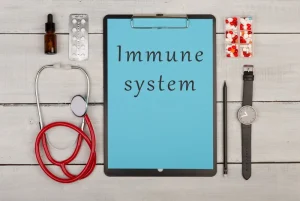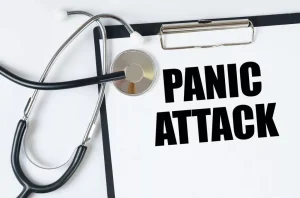
Relapse prevention focuses on building the awareness necessary to recognize the early stages of relapse. It also provides the skills to change your behavior and avoid misusing substances again. For many people, drug and alcohol use began as a way to alleviate boredom or make certain activities feel more fun.
What is the importance of a relapse prevention plan?
It addresses negative thinking patterns such as all-or-nothing thinking, disqualifying the positives, catastrophizing, and negatively self-labeling. Identifying warning signs of relapse involves being aware of key emotional, mental, and behavioral indicators. Emotional warning signs may include anxiety, depression, irritability, mood swings, and isolation. Mental warning signs can include thoughts of using drugs or alcohol, rationalizing past use, minimizing past consequences, intense cravings, and dishonesty. Recognizing these warning signs is an important step toward preventing relapse.
Managing Internal Triggers
- With your counselor or therapist, create a plan on how to handle the temptations that come with fun events like parties, weddings, holidays, and more.
- External triggers are often easier to identify, as they are people, places, things and activities that make someone want to use drugs or alcohol again.
- The individual usually starts to experience negative emotional responses, such as anger, moodiness and anxious feelings.
- If you fear you are at imminent risk of relapsing, contact them immediately.
- By incorporating therapy, medications, and monitoring into a comprehensive treatment plan, individuals in recovery can increase their chances of maintaining long-term sobriety.
Triggers may decrease in frequency the longer someone abstains from substance use, but anyone in recovery needs to be prepared to respond appropriately when triggers do arise. A person’s support system may also play an important role in recovery and the avoidance of relapse. Family counseling and therapy sessions may help loved ones to better understand the disease of addiction and learn to recognize potential relapse triggers and ways they can support in those instances. Communication skills and the overall family dynamic may improve through family therapy as well.
- Recognizing and addressing these common relapse triggers allows for proactive management, thus reducing the likelihood of reverting to substance use.
- This helpline is answered by Legacy Healing Center, an addiction treatment provider with treatment facilities in California, Florida, Ohio, and New Jersey.
- Mental health professionals can provide techniques and therapies that help individuals understand their triggers and develop coping mechanisms.
- A relapse may consist of one single use followed by a realization of the mistake, while others may last any length of time.
- It’s important for people in recovery to be aware of the internal triggers they struggle with the most and have a plan in place to seek support when needed.
Learn about some common triggers that raise the risk of relapse and how they can be avoided.
Alan Marlatt, PhD, developed an approach that uses mental, behavioral, and lifestyle choices to prevent relapse. Relapse can be a challenging and discouraging experience for individuals who are on the path to recovery from addiction. In order to prevent and manage relapse, it is crucial to identify and understand https://ecosoberhouse.com/ the triggers that can lead to a recurrence of addictive behaviors. This article aims to provide insights into the common triggers for relapse and strategies to effectively manage these high-risk situations. In the journey of recovery, it is crucial to have a strong strategy in place to prevent relapse.
Old Friends

Research has found that getting help in the form of supportive therapy from qualified professionals, and social support from peers, can prevent or minimize relapse. In particular, cognitive behavioral therapy (CBT) can help people overcome the fears and negative thinking that can trigger relapse. This could include family, friends, sponsors or other members of your addiction recovery community, just to name a few people.
- If you are experiencing negative thoughts, monitor them by journaling and talking to a therapist.
- Rather than try to address each individual one, a helpful strategy may be to develop healthy ways of dealing with stress in general.
- Reach out to family members or friends who are safe and encouraging or join a support group.
- Beyond cravings, this can also lead to a longing for the environment or lifestyle that you left and does not provide the same recall for the reasons that you initially sought recovery.
- As part of their all-or-nothing thinking, they assume that change means they must change everything in their lives.
- This is the stage that is most commonly thought of when one hears the term relapse.
Professional Support for Triggers
Creating a plan for how to act when you encounter these triggers can be very helpful. We have more information for you about the recovery process and how to get started. Emotional relapse is the first of three stages of relapse, so keeping an eye on your emotional state is an important way to manage triggers. It may seem obvious to point out that drug and alcohol cravings can trigger a relapse, but it is worth discussing so that you can develop a plan for dealing with these triggers.

Relapsing into cocaine use
A person may also cease the pursuit of interests and hobbies they have developed in recovery. Getting out of a high-risk situation is sometimes necessary for preserving recovery. It’s possible to predict that some events—parties, other social events—may be problematic. It’s wise to create in advance a plan that can be enacted on the spot—for example, pre-arranging for a friend or family member to pick you up if you text or call.

Those ways are essential skills for everyone, whether recovering from addiction or not—it’s just that the stakes are usually more immediate for those in recovery. Many experts believe that people turn to substance use—then get trapped in addiction—in an attempt to escape from uncomfortable feelings. They may not recognize that stopping use of a substance is only the first step in recovery—what must come after that is building or rebuilding a life, one that is not focused around use. In general, the longer a person has not used a substance, the lower their desire to use.
Cravings may not always have an immediately identifiable source, and they can be difficult to overcome if you feel surprised by them. A common question about honesty is how honest should a person be when dealing with past lies. types of relapse triggers The general answer is that honesty is always preferable, except where it may harm others [14,21]. A relapse may look different for each person, depending on how much they use and the circumstances surrounding the relapse.
